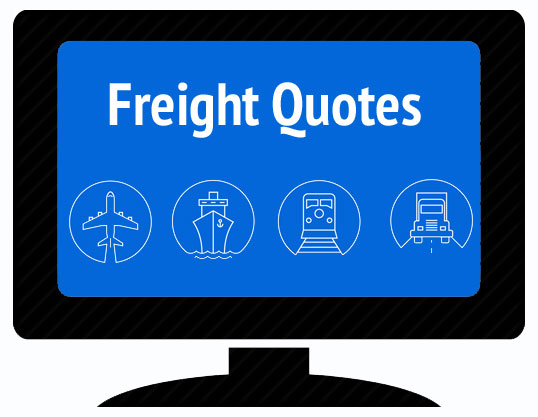
by Scott Frederick | Oct 20, 2015 | News
 Time and accuracy are both important when it comes to shipping. That’s why it’s important to provide correct and accurate information when requesting freight quotes for transportation services. If you’re shipping LTL, truckload, expedited, or international, here are some general guidelines to help ensure you receive a prompt and precise rate estimate from your freight broker or freight forwarder.
Time and accuracy are both important when it comes to shipping. That’s why it’s important to provide correct and accurate information when requesting freight quotes for transportation services. If you’re shipping LTL, truckload, expedited, or international, here are some general guidelines to help ensure you receive a prompt and precise rate estimate from your freight broker or freight forwarder.
Know what you are shipping and be clear about it.
This seems obvious, but it is surprising how many people try to get freight quotes without providing specific details on what it is they’re shipping. The commodity type and description matter. Special rules apply to certain raw materials, or items that may be imported or exported. Household goods and used products have different limitations on insurance and which carriers have authority to handle the shipment. Less-than-truckload (LTL) shipments have very complex and detailed freight classifications and density rules that may impact how your shipment is rated. So provide this detail up front if you can (in fact, if you already know your NMFC item number or your HTSUS code, go ahead and provide it in your quote request).
Know the size, weight and dimensions of your shipment.
Your shipment dimensions and weight should include whatever packaging is used to ship your goods, e.g., cartons, pallets, totes, etc. Having accurate weight and dimensions will avoid inspection and reweighing fees, and messy invoice corrections down the road. Weight and size are also particularly important for air freight shipments. Air freight prices are based on weight and size while ocean freight prices are generally just based on size.
Know where you are shipping to and from.
Again, this sounds obvious, but in the world of domestic freight shipping, it’s important for the carrier to know whether they are picking up at, or delivering to, a place of business or a residential location. Shipments to special locations, e.g., airports, container freight stations, convention centers, grocery warehouses, etc., may also require additional services or fees. When it comes to international shipping, your freight forwarder will need to know if your import or export is being shipped door to door, door to port, port to port, port to door. Being ready with addresses for the pickup and delivery locations is the best way to get the most accurate freight quote and service estimate.
Request your freight quote close to when you are shipping.
Transportation rates are very volatile with variables such as fuel costs, available capacity, and shipper demand. These variables are often not fully known until closer to your actual shipment date. Unless you’re a giant shipper like Walmart or Costco, you’re dealing with a constantly changing spot market for transportation rates. Even if you have negotiated LTL or truckload transportation rates, you will still be subject to weekly fuel price changes. As a rule of thumb, freight quotes for LTL or truckload shipments are generally good for about 7 days; whereas, freight quotes for air or ocean shipments are good for about 30 days.
If you’d like a free freight quote from the award-winning transportation and logistics team at Logistics Plus, simply click the button below. We provide quick, no-obligation freight quotes for LTL, truckload, expedited, international, project cargo, and more. Provide us with as much information as you can (the more the better), and we’ll take it from there!

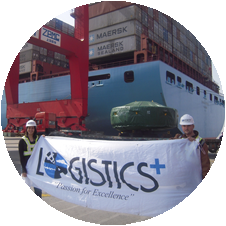
by logisticsplus | Oct 13, 2015 | News
 Logistics Plus is your global headquarters for freight forwarding and project cargo expertise! Other companies may claim to have expertise handling project cargo, but we’ll put our 20 years of project cargo experience up against anyone. Project cargo, also called project forwarding or project logistics is a specialized field of transportation and logistics that requires specific expertise, knowledge, and resources. Project cargo can often be large, unique, oversize, heavy-lift, or breakbulk shipments. Project cargo can also be managing a large volume of freight shipments within a specified time frame or by specific delivery date.
Logistics Plus is your global headquarters for freight forwarding and project cargo expertise! Other companies may claim to have expertise handling project cargo, but we’ll put our 20 years of project cargo experience up against anyone. Project cargo, also called project forwarding or project logistics is a specialized field of transportation and logistics that requires specific expertise, knowledge, and resources. Project cargo can often be large, unique, oversize, heavy-lift, or breakbulk shipments. Project cargo can also be managing a large volume of freight shipments within a specified time frame or by specific delivery date.
Logistics Plus has extensive project cargo expertise in handling, lifting, and transporting the most difficult of cargo across many industries. We’ve managed projects involving locomotives, windmills, satellites, solar panels, gas pipes, boilers, generators, LNG tanks, pumps, helicopters, machinery, tractors, ship blocks, aviation components, and more. And we’ve done so in countries all around the world, including the United States, Canada, Mexico, Brazil, Chile, Belgium, Germany, Finland, China, India, Indonesia, Turkey, Saudi Arabia, and Libya, to name just a few. The following photo gallery provides some great examples of the many cargo projects our team has handled over the past couple of years.
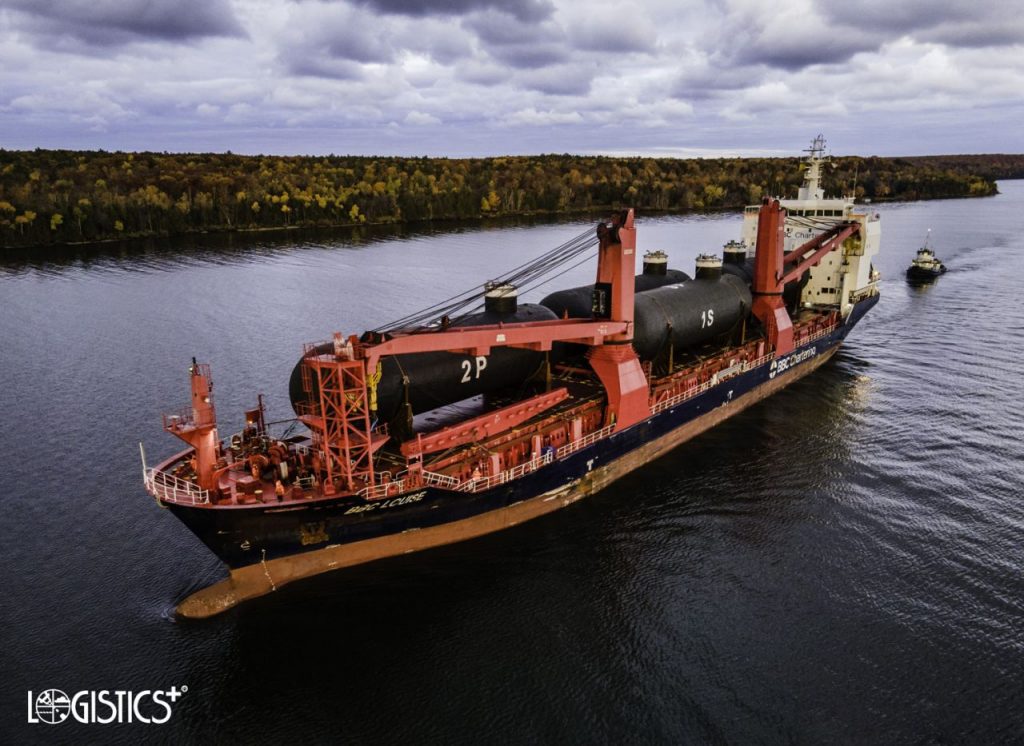
When you work with Logistics Plus, you can enjoy the peace-of-mind knowing that you’re working with an experienced project cargo logistics company that has a reputation for managing projects from start until finish – and everything in between. Our project cargo services include all of the following options:
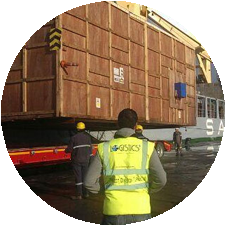 Planning and scheduling
Planning and scheduling- Crating and packaging
- Breakbulk preparation
- Specialized equipment for loading and unloading
- On-site management and inspection
- Proactive tracking and monitoring
- Air, ocean, ground, and rail transport services
- Vendor management and logistics consultation
- Customs brokerage and global trade compliance
The secrets to our project cargo success are as follows:
- Talented, experienced, and caring logistics professionals
- Our global network of people, locations, and resources
- Cargo visibility and responsiveness to potential problems
- Award-winning service and market-competitive rates
- World-class technology and transportation management tools
If you’re interested in learning more, click the image below to visit us online to see how we manage project cargo or to request a no-obligation project cargo quotation. You can also contact our Project Cargo Division directly by calling 1.866.564.7587 option 5 or by sending an email to projectcargo@logisticsplus.com.
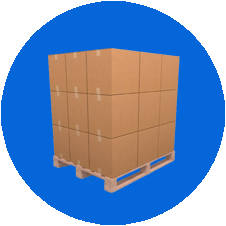
by Scott Frederick | Oct 12, 2015 | News
 Freight management solutions are a core competency for Logistics Plus. In fact, the company was founded nearly 20 years ago to provide inbound domestic freight management services to GE Transportation, a division of General Electric (GE) – one of the largest companies in the world. The success we demonstrated in those early years opened up doors to a variety of other solutions, such as warehousing, international freight forwarding, and global trade compliance. Despite our global footprint and expanded solutions portfolio, freight management remains a central part of our core service offerings. Today we help thousands of companies manage their freight – and we even provide on-site managed transportation solutions to a number of large clients.
Freight management solutions are a core competency for Logistics Plus. In fact, the company was founded nearly 20 years ago to provide inbound domestic freight management services to GE Transportation, a division of General Electric (GE) – one of the largest companies in the world. The success we demonstrated in those early years opened up doors to a variety of other solutions, such as warehousing, international freight forwarding, and global trade compliance. Despite our global footprint and expanded solutions portfolio, freight management remains a central part of our core service offerings. Today we help thousands of companies manage their freight – and we even provide on-site managed transportation solutions to a number of large clients.
If your company ships less-than-truckload (LTL), truckload, and expedited freight shipments on a regular basis, we invite you to try our four-step approach to better rates and service.

The secrets to our freight management and managed transportation success are as follows:
- Talented, experienced and caring logistics professionals
- Honesty and transparency with our customers and our carriers
- Great rates, super carriers, and outstanding service
- Shipment visibility and responsiveness to potential problems
- Customized, user-friendly technology and freight management tools
If you’re interested in trying any or all of our 4-steps to freight management success, please visit our online freight headquarters at www.logisticsplus.com/freight-hq or click the image below to get started.
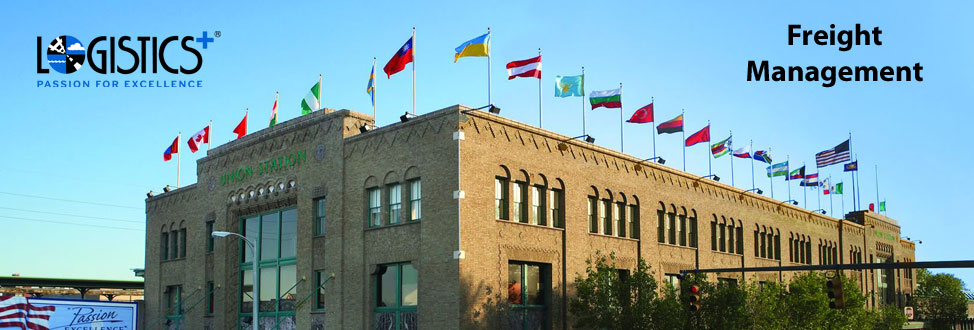

by Scott Frederick | May 27, 2015 | News
 Are you new to freight shipping?
Are you new to freight shipping?
In today’s lean workplace environment, it’s not uncommon for managers to ask employees to wear “multiple hats.” Operations people may be asked to make sales calls, accounting professionals may be asked to fill-in for operations, or office personnel might be asked to arrange for freight shipping. This latter example might happen with greater frequency as some owners or plant managers may view freight shipping as nothing more than calling a couple freight carriers for quotes and then arranging for a pickup – but as many of us know, there’s a little more to it than just that. So here’s a quick freight shipping 101 primer for those of you just starting out.
What is freight shipping?
Although the term “freight” can generically refer to “a charge paid for carriage or transportation of goods,” in the U.S. the term most often refers to larger (non-parcel) sized shipments that move with a less-than-truckload (LTL) or full truckload (FTL) carrier.
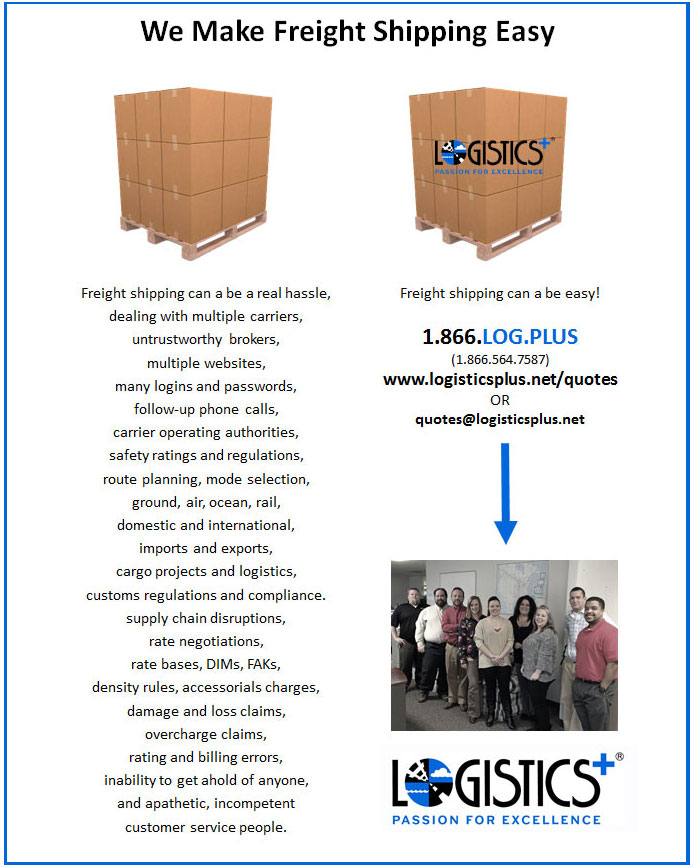 LTL shipments occupy only a portion of the truck’s trailer, generally range anywhere from 150 to 10,000 pounds, and are often shipped on pallets or skids. LTL carriers normally have set routes where they routinely pickup and deliver their shipments. Local “city” trucks will make deliveries and pickups throughout the day. LTL shipments picked up are brought back to a local freight terminal where they are consolidated for highway travel. “Linehaul” trucks will then move full trucks from one city to the next, where the local city operation will deconsolidate shipments for final delivery. Because of the “network” investments needed for this type of operation, the majority of LTL shipments handled in the U.S. are handled by as few as 25 national or regional LTL carriers. When you buy LTL services, you are basically renting a portion of the trailer for your shipment. Because there are limited alternatives, negotiating good rates and maintaining leverage with your selected carriers is important. Working with a reputable 3PL/broker that specialized in LTL service can help you secure competitive rates and ensure you are getting good customer service.
LTL shipments occupy only a portion of the truck’s trailer, generally range anywhere from 150 to 10,000 pounds, and are often shipped on pallets or skids. LTL carriers normally have set routes where they routinely pickup and deliver their shipments. Local “city” trucks will make deliveries and pickups throughout the day. LTL shipments picked up are brought back to a local freight terminal where they are consolidated for highway travel. “Linehaul” trucks will then move full trucks from one city to the next, where the local city operation will deconsolidate shipments for final delivery. Because of the “network” investments needed for this type of operation, the majority of LTL shipments handled in the U.S. are handled by as few as 25 national or regional LTL carriers. When you buy LTL services, you are basically renting a portion of the trailer for your shipment. Because there are limited alternatives, negotiating good rates and maintaining leverage with your selected carriers is important. Working with a reputable 3PL/broker that specialized in LTL service can help you secure competitive rates and ensure you are getting good customer service.
Truckload (or FTL) carriers differ from LTL carriers in that they have no predefined network. Their drivers and trucks typically make a pickup and then deliver directly to the final destination (where they must find another shipment to haul somewhere else). Truckload shipments generally weigh over 10,000 pounds, occupy the majority of a truck’s trailer, or have some unique dimensions or handling requirements. Because anyone with a truck can make a pickup and/or delivery, there are thousands of truckload carriers specializing in all types of equipment: dry vans, flatbeds, refrigerated trailers, liquid tanks, and more. When you by FTL services, you are basically renting the entire trailer for your shipment. Because choices are unlimited, finding reliable and safe truckload carriers with the right equipment at the right price can be a time-consuming effort. Working with an experienced 3PL/broker that specializes in truckload service can help minimize time commitments and safety concerns. Experienced and reputable 3PLs like Logistics Plus will pre-screen carriers to ensure they have the proper operating authorities, insurance, and safety background. They will also be adept at using load boards and other transportation management tools to find you the right carrier at the right price.
How should I pack my shipments?
You should package, crate, or stack on pallets securely to prevent damage. Use banding, shrink-wrap, stretch-wrap, or breakaway adhesive to effectively secure cartons to the pallet. A freight carrier can void any liability for damage due to improper packaging. Be sure to stack cartons squarely on a skid, leaving no overhang. Make sure the top surface is flat. Do not forget to place labels on every piece or package. Because you are essentially paying for “space” on the trailer, eliminating or minimize any and all “dead space” in your shipment will result in the most economical freight charges.
What is a bill of lading?
Simply put, a bill of lading is the most important document in the shipping process. One is required for each shipment, and acts as both a receipt and a contract. A properly completed bill of lading legally shows that the carrier has received the shipment as described, and is obligated to deliver that freight in good condition to the consignee (the receiver of the shipment). Many businesses will have their own standard bill of lading. If not, your carrier or 3PL will generally be happy to provide you with one (in the case of Logistics Plus, we’ll even help you complete it and schedule the shipment with your carrier).
What is freight classification?
Freight Classification (“class”) is a National Motor Freight Classification (NMFC) standard used to classify and rate commodities (items you are shipping) primarily based on their density and value. Each commodity is categorized into one of 18 classes – lowest being class 50 and highest being class 500 – based on four transportation characteristics (per NMFC): density, stowability, handling, and liability. Freight classification will only come into play when you are shipping LTL freight shipments. If you don’t know the freight class for whatever you are shipping, most carriers or 3PLs will help you make that determination. Truckload shipments normally move on a cost-per-pound basis based on the weight and distance of the shipment being transported, and therefore freight class is not required.
Who pays the charges for a freight shipment?
A freight shipment will move “prepaid” or “collect,” and sometimes with the added distinction that it is “third-party billed.” A prepaid shipment means that the shipper is responsible for the freight charges and a collect shipment means that the consignee is the responsible party. A third-party billed shipment means that a third-party (neither the shipper nor the consignee) will receive the invoice and pay for the shipment on the shipper’s or consignee’s behalf. When you work with a 3PL such as Logistics Plus to manage your freight shipping, all of your shipments should be designated as third-party billed. Good 3PLs will then audit the bills for accuracy and send you a consolidated invoice of all of your shipping activity for your convenience.
Is my freight delivery service guaranteed?
Standard LTL or truckload service is never guaranteed, so selecting a reliable carriers is especially important if your shipment needs to be delivered on a specific day or within a specific date range. Many carriers provide additional service options for “guaranteed” or “expedited” delivery service. These services will cost more, but sometimes they can be worth it for the added peace-of-mind. If requested, Logistics Plus can provide guaranteed or expedited price quotes for both LTL and truckload services.
It is also important to note that most carriers will not guarantee their pickup dates or times either. When you schedule a freight shipment pickup, be sure to allow adequate time for the carrier to arrive, ideally one day in advance but no later than 3:00 pm the day of pickup. Be sure to provide the carrier with your “dock time” or “pickup availability” time window so that they can arrive for the pickup at a time that is works for you and your staff. Some carriers are much more reliable with their pickups than others. A knowledgeable 3PL like Logistics Plus can help you select the best carrier based upon your needs.
What are accessorial services and fees?
As part of the standard process, freight carriers will generally pickup and deliver your shipment to or from a freight dock or a designated area that is directly accessible or immediately adjacent to the carrier’s delivery vehicle. Any service request that goes above and beyond that basic description could result in an “accessorial fee” being applied to your freight bill. Examples of common accessorial services are listed below.
- Lift gate service
- Inside pick up or delivery
- Residential service
- Reweigh and inspection
- Cubic capacity or density rules
- Collect on delivery (COD)
- Fuel surcharge
- Arrival notification
- Insurance
Most carriers will publish these services and fees in a “rules tariff” or a standard rate schedule and will make it available online or upon request. 3PLs or carriers with transportation management systems (TMS) technology will often have these rates pre-loaded into the system so that you will know when these fees applies based on the characteristics of your shipment. Logistics Plus uses a proprietary and powerful TMS solution called eShipPlus™.
What happens if my freight shipment is damaged?
Claims are handled directly between the shipper, consignee and the carrier. Logistics Plus is not involved in the actual claims process and cannot influence in the carrier’s claim decision. That said, because we provide a lot of business to carriers, we can often help expedite the resolution process on your behalf. You have within 90 days of delivery to file a claim with the carrier. The claimant should only file for loss or damage on the product which was shipped. Always be as thorough as possible in noting specific damage on the delivery receipt. This will help protect your interests later on if a freight claim is submitted to the carrier. Our logistics specialists can provide you with freight claims help and assistance with the proper forms if needed.
How can Logistics Plus help me save on my freight shipping?
For nearly 20 years, Logistics Plus has been helping businesses manage their freight shipping and logistics. Our logistics experts have helped hundreds of customers save significant money and improve their operating efficiency by starting with a free freight analysis of their shipping activity. Our eShipPlus TMS provides customers with powerful, online freight management tools with the ability to efficiently and affordably shop rates across multiple carriers, schedule pickups, track shipments, and more. All these services and savings help to positively impact your bottom line. And the best part of all — there is no additional cost to you to use our freight management services. Contact us for more information or get a quick quote on your next freight shipment.


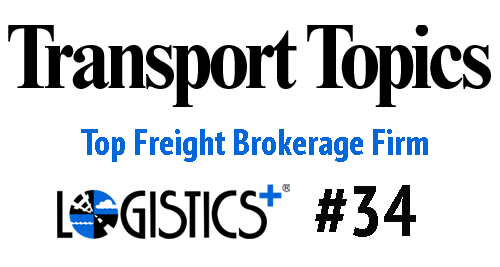
by logisticsplus | Oct 29, 2014 | News
 This week Inbound Logistics magazine distributed an article called “10 Tips for Maximizing Your Freight Broker Relationship.” If you saw the article, it almost reads like a checklist for Logistics Plus® freight services. Here are the recommended ten tips from the article along with information on how Logistics Plus stacks up:
This week Inbound Logistics magazine distributed an article called “10 Tips for Maximizing Your Freight Broker Relationship.” If you saw the article, it almost reads like a checklist for Logistics Plus® freight services. Here are the recommended ten tips from the article along with information on how Logistics Plus stacks up:
- Find a reliable partner with market knowledge. As our many testimonials prove, Logistics Plus is about as reliable a freight management partner as you will find. Additionally, we have nearly 20 years of experience managing freight for reputable companies such as GE, PPG, and many others. We have tools that allow us to secure market competitive rates, and we have relationships with thousands of reputable freight carriers.
- Check for the right fit. We are the right fit for just about any size company. We work with Fortune 500 corporations, and we manage shipping for small businesses. Typically the businesses that find us to be the right fit are the ones that require that extra “plus” attention. In fact, we have a reputation for taking on big freight projects that other logistics companies turn down (e.g., we recently shipped over 3 million solar panels to southern California for a large solar panel manufacturer). We do the little things like schedule pickups, provide storage services, monitor deliveries, track shipments, and more.
- Are they where you need them to be? Logistics Plus has a network of people and resources located in offices across North American and around the world. So it’s hard to imagine a scenario where a customer needed service somewhere that we could not provide it.
- Financial standing. We are a privately-owned company, but you can rest assured knowing that we have made the Inc. 5000 list on three different occasions for being one of the fastest-growing companies in the U.S. Additionally, our founder has earned an Entrepreneur of the Year award from Ernst & Young, and many others, which would not be possible if our company was not financially strong.
- Look for sourcing expertise. We work with all of the top national and regional LTL (less-than-truckload) carriers in the U.S., and we have service agreements in place with thousands of additional truckload and specialized carriers. Additionally, we have logistics experts who monitor and use all of the top load boards in the industry. If you need affordable capacity or unique equipment – we can find it!
- Ensure strong relationships. As mentioned in tip #5, we have all of the carrier relationships a reliable freight management partner should have. We also have in-house resources and assets through our National Truck Load (NTL) division in cases where more dedicated resources are needed. We also work as a 4PL partner with many large corporations which helps reinforce our buying leverage and keeps us in tune with trends in both supply and demand.
- Check for visibility. Whether your shipments are domestic, cross-border, or international – Logistics Plus has the expertise and technology to monitor shipments and keep the most important information visible to you. Our eShipPlus™ keeps our North American customers apprised of their freight shipments, while our LP WorldPlus™ systems keep our global customers in the loop on their international cargo.
- Research details and hidden costs. Freight quotes through Logistics Plus are detailed and transparent, as is our invoicing You’ll never be surprised with hidden costs when you work with us.
- Ensure resilience. Asset-only brokers often cannot be as flexible as those who source assets. Shippers should look for a company that remains as lean as possible. That’s exactly what Logistics Plus is – lean and flexible: we can confidently cover almost anything, anywhere in the world.
- Check compliance track record. The Inbound Logistics article finishes off by recommending that shippers be sure the broker they choose is fanatical about compliance issues. When it comes to carrier compliance – and other trade compliance matters – no one could be more fanatical than Logistics Plus. We even provide regular training on this very subject to other companies and organizations.
There you have it. If you like the 10 tips for maximizing your freight broker relationship as recommended by Inbound Logistics magazine, then you’ll love working with Logistics Plus for all of your freight management needs. If you’re ready to give us a try, simply click the button below to get a QUICK QUOTE on your next shipment to get started (or call us at 1-866-564-7587)!
Page 12 of 12« First«...89101112

 Time and accuracy are both important when it comes to shipping. That’s why it’s important to provide correct and accurate information when requesting freight quotes for transportation services. If you’re shipping LTL, truckload, expedited, or international, here are some general guidelines to help ensure you receive a prompt and precise rate estimate from your freight broker or freight forwarder.
Time and accuracy are both important when it comes to shipping. That’s why it’s important to provide correct and accurate information when requesting freight quotes for transportation services. If you’re shipping LTL, truckload, expedited, or international, here are some general guidelines to help ensure you receive a prompt and precise rate estimate from your freight broker or freight forwarder.



 Planning and scheduling
Planning and scheduling






 This week Inbound Logistics magazine distributed an article called “10 Tips for Maximizing Your Freight Broker Relationship.” If you saw the article, it almost reads like a checklist for Logistics Plus® freight services. Here are the recommended ten tips from the article along with information on how Logistics Plus stacks up:
This week Inbound Logistics magazine distributed an article called “10 Tips for Maximizing Your Freight Broker Relationship.” If you saw the article, it almost reads like a checklist for Logistics Plus® freight services. Here are the recommended ten tips from the article along with information on how Logistics Plus stacks up: